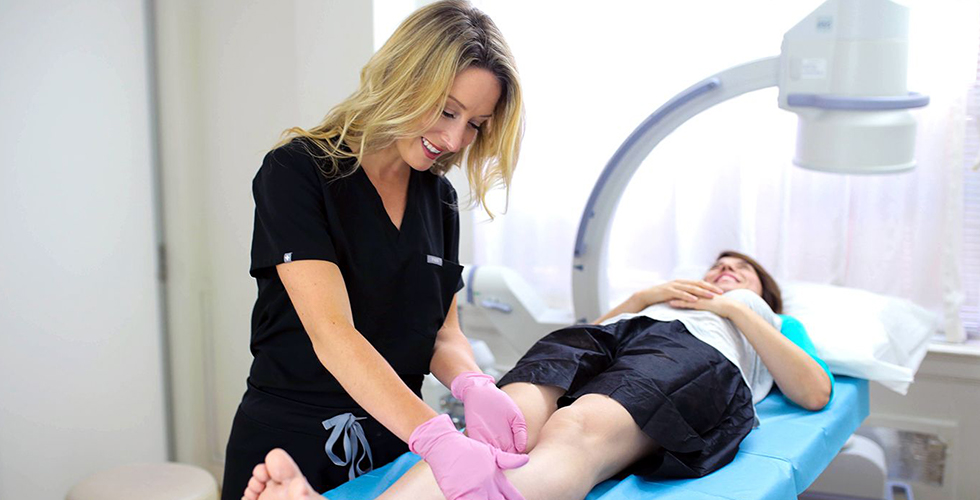Dietary deficiencies or the deterioration of skin elasticity due to aging can be major factors creating the varicose veins. As we age, the valves and veins in the legs get faulty some of their strength and muscle tone. Veins begin to stretch and weaken causing pooling of blood in the calf and ankles increasing the risk of developing varicose veins, leg heaviness, and pain. Make it better with the vein center and know about the treatment.
Varicose veins can be painful psychologically as well as physically. If you’re fearful about what the outcomes may be for your fitness because of varicose veins or spider veins, gather courage, making small alterations in your diet can make. Changes in eating habits can turn around the whole scene if you are already taking the spider vein treatment and varicose vein treatment . On the mandatory note, To ease varicose veins and spider veins, it is recommended that you consume at least 30 grams of fiber a day from whole foods.
These foods ease varicose vein symptoms while strengthening leg vein walls all facts are backed with research done by the best vein clinic :
Eat plenty of fresh fruits, including berries, cherries, and citrus fruit making sure to nibble on the inside of the rinds to obtain maximum amounts of vitamin C and bioflavonoids. This will help you in glowing skin and fight signs of aging.
Having steamed vegetables such as spinach, cabbage, carrots, turnips, and cauliflower for fiber.
Including flavoring spices like ginger, garlic, and onions help break down the fibrin surrounding the varicose veins. Without including these in your diet varicose veins will continue to stay like that. If they are getting serious have a word with the vein clinic .
Take whole grains in lunch, especially buckwheat and millet, oats, barley, beans, peas, lentils, baked potato with the skin, brown rice, and whole wheat. The fiber in whole grains takes some of the pressure off varicose veins and prevents constipation.
Snacking on seeds, nuts, raisins, figs, and dates. Flavonoid-rich foods such as yams, onions, grapes, and berries. Plenty of fish for omega 3 and required fatty acids.
Food to be withdrawn, these foods can take a toll on varicose vein symptoms:
Bread, peeled potatoes, and starchy foods cause constipation which can put more pressure on leg veins, and obviously, they can make you fat better avoid them.
All eatables, salt, alcohol, coffee, tea, fried foods, packed and refined foods, all-purpose flour products, white sugar and packed juices, cheeses, and ice cream. These foods can be constipating and can cause slow circulation, leg pain, and cramps connected with varicose veins.
It is recommended to cut down on red meat as much as possible and restrict fatty animal protein to prevent worsening of your symptoms. Varicose vein targeted lotions and care products made with safe but powerful herbs and essential oils stimulate sluggish circulation in the legs and help pump blood back up to the heart, increasing leg energy, comfort, and ease.
Look for creams that contain calendula, horse chestnut, and ginkgo Biloba. These herbs promote blood circulation, significantly decrease pain and swelling, and help in revitalizing the weak veins.
.jpg)

No comments:
Post a Comment